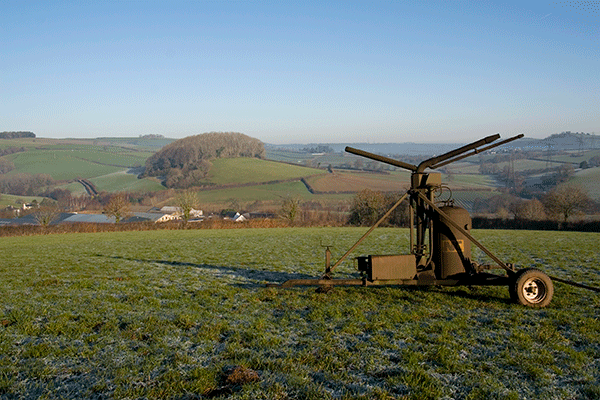What’s going on? “It’s November; I’m getting my life back,” answers Martin, our veteran harvest manager. It’s his job to match staff, skills, and machinery to the requests coming from our veg box packing team. It has been a long summer, plagued by staff shortages and weather anomalies, so it is a relief for Martin to feel the pressure easing.
As the work falls away from our peak in July, we drop from a team of 70 co-owners in the fields, to a hardy group of about 20-25 who will see out the winter.
Some of those no longer working take a holiday, some Eastern Europeans (who make up about half of our co-owners in the fields) go home for a few months, and a few move over to work in our barns instead. Most will return to the fields in the spring.
Pulling leeks in a gale in January with ten pounds of mud on each boot requires extraordinary physical and mental resilience – but a small, hardy minority would choose work with a view, even in wind, rain, and mud, over any indoor job. Sadly they are getting fewer, and every year recruitment for the winter field team gets harder, creating a growing pressure to mechanise.

I love the machinery; it is poetry in motion to see a potato, carrot, or salad leaf harvester working well in a good crop. Those who romantically lament the passing of hand labour have seldom done much themselves. I do lament the combination of ever-growing scale and narrow specialisation used to keep those machines busy; machines require uniform crops, which adds pressure to use hybrid seeds and, on conventional farms, more artificial fertilisers and pesticides – eroding biodiversity.
The co-op I helped found over 20 years ago, the South Devon Organic Producers, shares machinery, labour, and knowledge – and has helped to support a number of medium-sized, mixed farms, whose more traditional methods benefit nature.
Perhaps just as importantly, it has provided mutual support in what can be a lonely business. And for now, as the weather cools, and crops hold well in the fields and the stores, those who work outdoors can enjoy some well-earned days off.















Just to say as a family we really appreciate the food that you are providing. The first notable thing about your food is the freshness. So to reading this article makes me appreciate it all the more. I hope our winter isn’t too wet, walking in boots so caked in mud while pulling leeks sounds most difficult. Yet the use of machines could compromise the organic products. I can only say thank you to the workers and yourself and I hope they enjoy the well deserved days off.
I would also endorse that, well done and thank you all for your hard work on my behalf
I DO know how hard and arduous it is to grow and harvest fruit and veg organically – so not only am I grateful to you all for doing it – I am flabbergasted that it is so reasonably priced!
Some of us over a certain age can remember weeding and then later pulling, carrots, The former with sacks round our knees to provide traction in the wet earth. We weeded out ragwort by hand later, then in the autumn half term went potato picking. We were of course paid, which set us off on the road to a work ethic – a manual one at that. Oh, and there was also hand hoeing turnips earlier in the year.
Yes agree, thank you for all your hard work. Since I have signed up for my veg box I have not thrown a as much as a cabbage leaf. The fruit and veg are so fresh and crisp, wonderful. Just wanted to let you know that only stalks go into the bin, so your hard work pays off in so many ways.